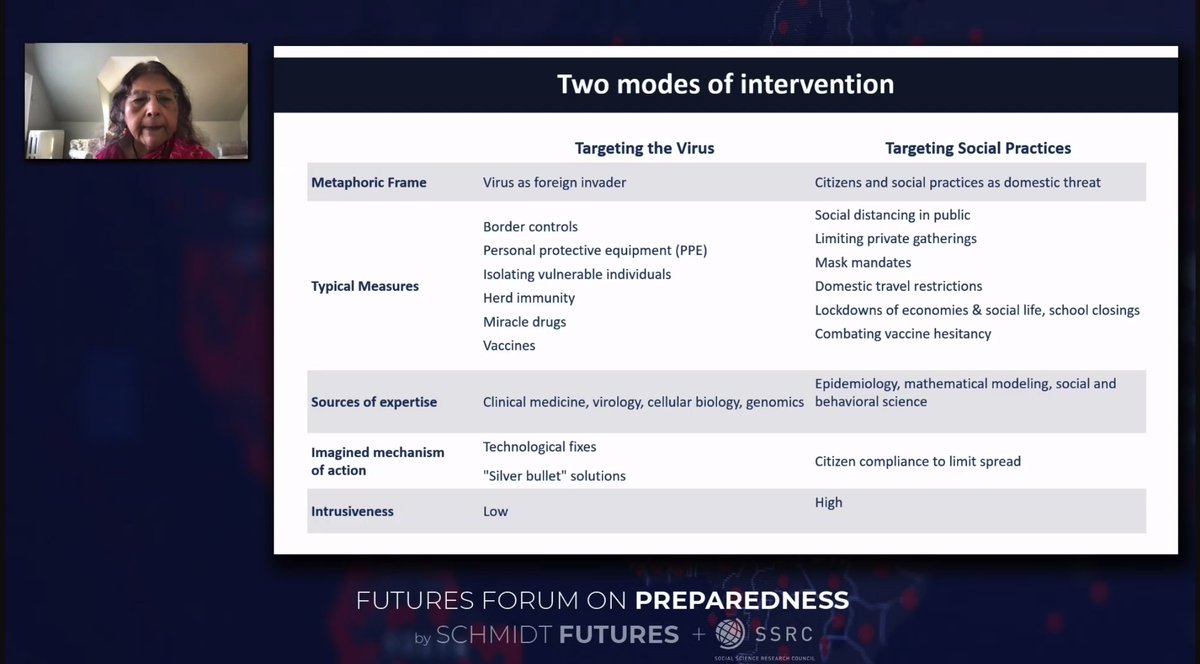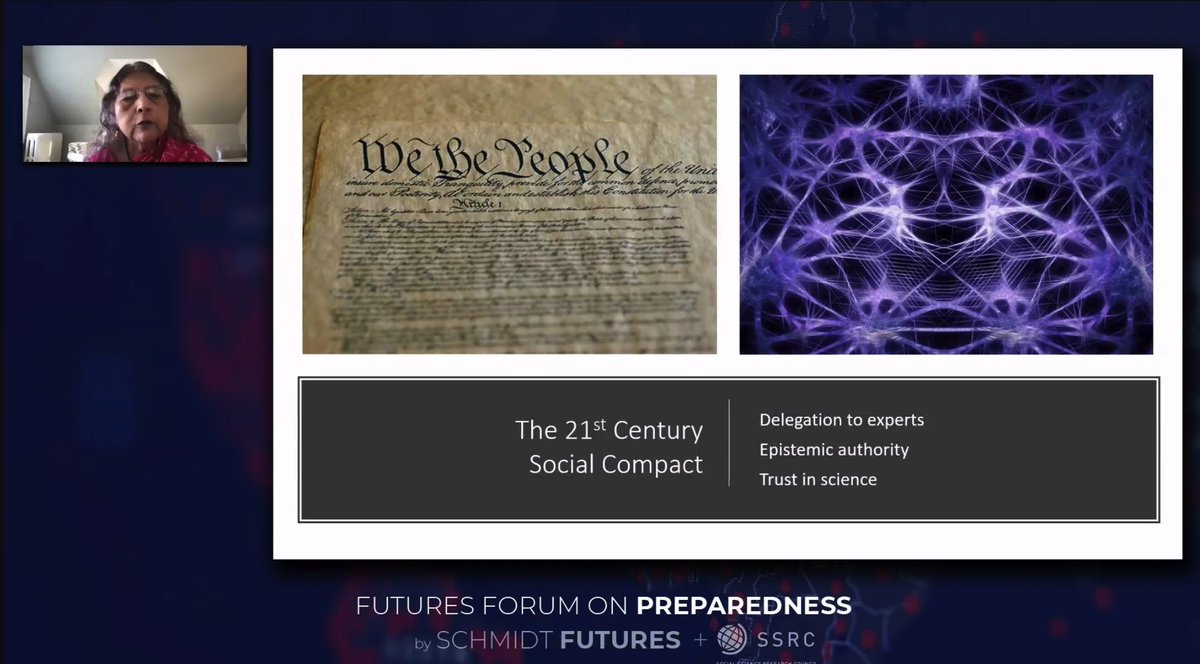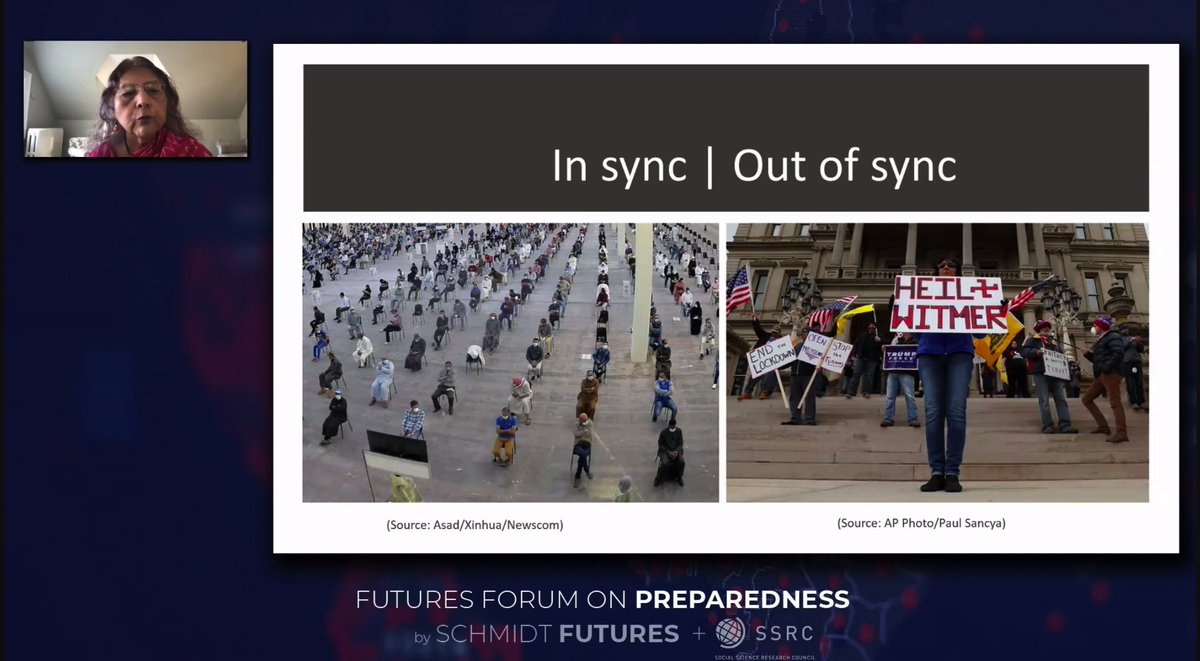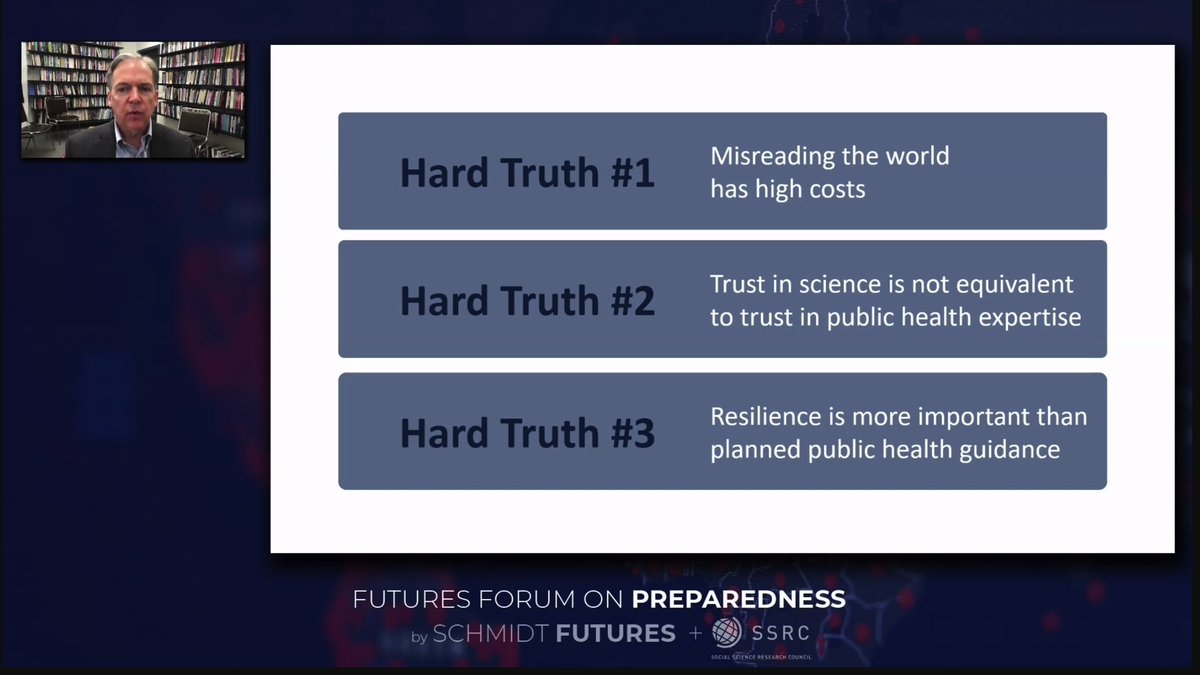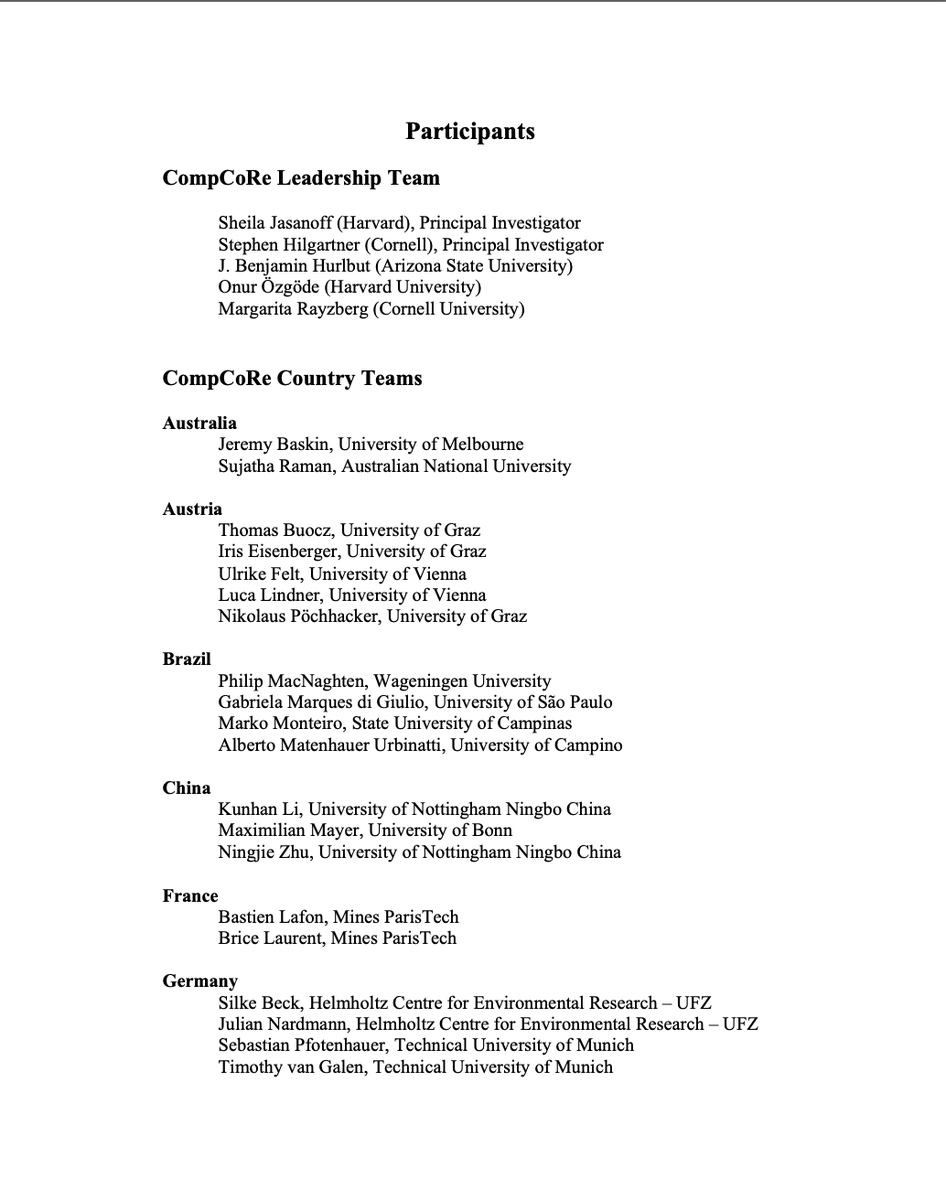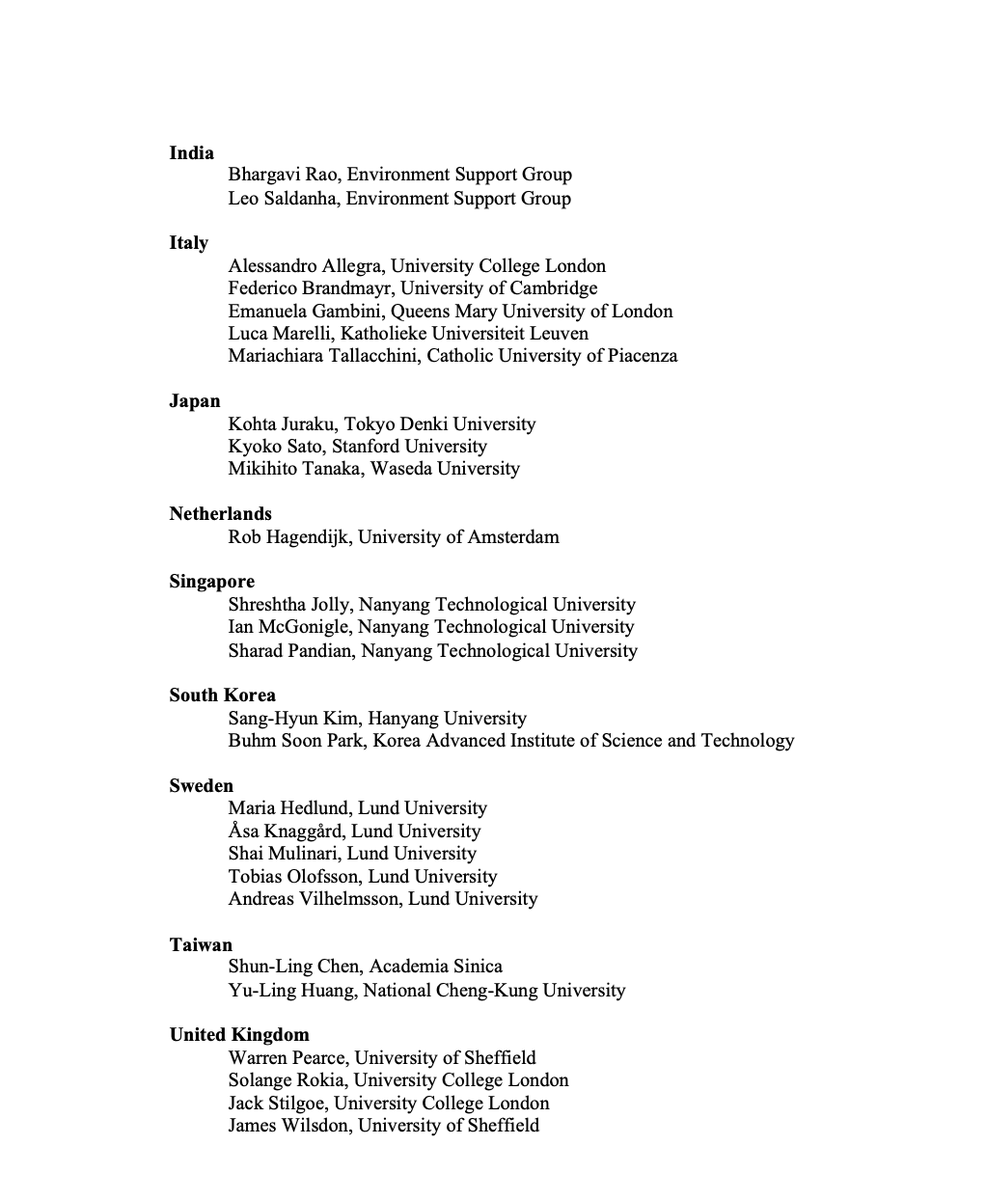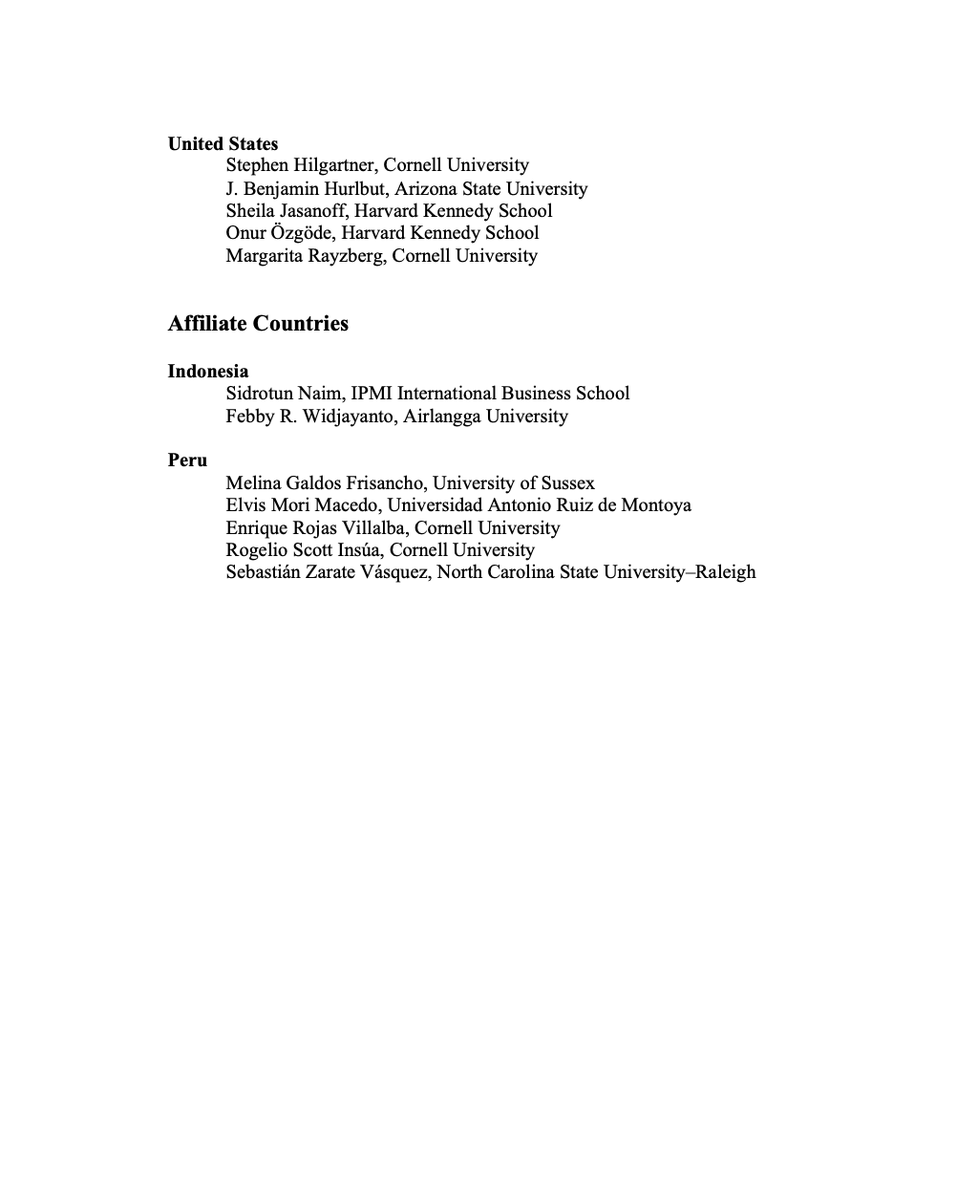Session I: COVID-19 – Case Studies from 23 Nations is about to begin! Tune in to watch @SteveHilgartner and @SJasanoff and others! https://twitter.com/CompCoRe_STS/status/1348985695197679616
As Dr. Jasanoff explains, our study comprises 23 countries on 6 continents with over 60 researchers.
In addition to STS, our group brings together an interdisciplinary group from various fields of expertise!
While the pandemic is global, our study finds that nations still matter! After all, national measures dominate policy, and past responses play an important role in how nation's respond.
It turns out measures such as the levels of preparedness and expertise, maturity of democracy, and economic capacity are not good predictors of success in containing the pandemic!
Now @SteveHilgartner takes over.
Key insight of our study is that we have to think about the pandemic in three arenas: public health, the economy, and politics.
And when we do this, we have avoid these 5 fallacies.
Key insight of our study is that we have to think about the pandemic in three arenas: public health, the economy, and politics.
And when we do this, we have avoid these 5 fallacies.
We find:
- Playbooks are not enough;
- Politics is key to build solidarity;
- Choice of indicators is political and a site of controversy;
- Trust in official advice is only as good as trust in government;
- Distrust in scientific advise does not reflect scientific illiteracy.
- Playbooks are not enough;
- Politics is key to build solidarity;
- Choice of indicators is political and a site of controversy;
- Trust in official advice is only as good as trust in government;
- Distrust in scientific advise does not reflect scientific illiteracy.
Instead, the key to understand policy performance is to look at how the pandemic finds the pre-existing conditions in society.
In Singapore, for instance, migrant workers dormitories were a key site of vulnerability even though Singapore did a great job overall.
In Singapore, for instance, migrant workers dormitories were a key site of vulnerability even though Singapore did a great job overall.
Back to @SJasanoff: We identify three broad patterns of response, control, consensus, and chaos.
Taiwan is a great example, which was able to act very early on. Being able to control its borders and with past experience with SARS, Taiwan was able to avoid economic damage.
Taiwan is a great example, which was able to act very early on. Being able to control its borders and with past experience with SARS, Taiwan was able to avoid economic damage.
Germany is the prototypical consensus case. Although they were not as fortunate in controlling the entry of the virus, Germany's tradition of building consensus allowed the country to act swiftly and decisively without much controversy.
In chaos countries, US, Brazil, and others, the virus was able to spread without much resistance and other two arenas were left in incredible disarray. Economic response became a space of contestation, and politics was a disaster.
A key aspect of why countries fall under different patterns is the degree to which what we call "public health sovereignty" wields authority over citizens.
Public health sovereign intervenes in the pandemic in two modes: targeting the virus versus targeting social practices.
Public health sovereignty's ability wield legitimate authority over the citizens, however, depend on the legitimacy of the social compact.
The key to success lies in the harmony between the political constitution and the expert constitution underlying public health sovereignty.
In conclusion, @SteveHilgartner underscores three hard truth!
You can find our Interim Report, Comparative Covid Response: Crisis, Knowledge, Politics, here!
Thank you for tuning in!
https://assets.website-files.com/5fdfca1c14b4b91eeaa7196a/5ffda00d50fca2e6f8782aed_Harvard-Cornell%20Report%202020.pdf
Thank you for tuning in!
https://assets.website-files.com/5fdfca1c14b4b91eeaa7196a/5ffda00d50fca2e6f8782aed_Harvard-Cornell%20Report%202020.pdf
We would like to thank our colleagues whose hard work and dedication made this report possible!
We grateful to Christopher Kirchhoff and Barbara Bush of @SchmidtFutures for their feedback and support.
We would also like to acknowledge our funders, @SchmidtFutures & @NSF!
We grateful to Christopher Kirchhoff and Barbara Bush of @SchmidtFutures for their feedback and support.
We would also like to acknowledge our funders, @SchmidtFutures & @NSF!

 Read on Twitter
Read on Twitter







